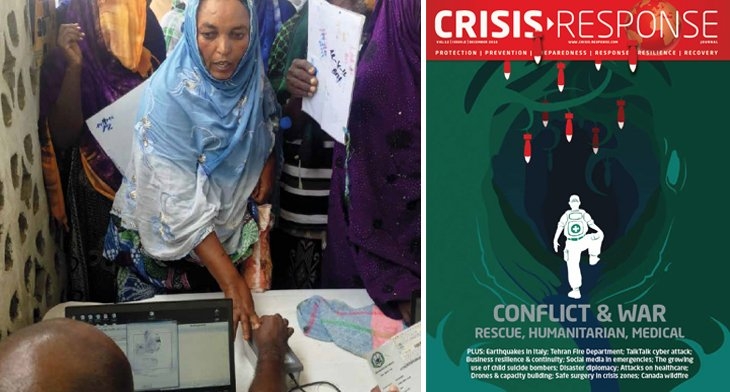The role of IT in sustainable development goals

How communications technology and connectivity are paramount to all stages of the work and energy going into achieving the Sustainable Development Goals that have been set by the United Nations.
Information and communication technology (ICT) is the key driver for accelerating innovation, improving economic development, social development and environmental protection. As such, the International Telecommunications Union (ITU) and Unesco launched the Broadband Commission for Sustainable Development to showcase and document the power of ICT and broadband-based technologies for sustainable development. Connectivity also plays a fundamental role in how aid agencies and NGOs gather, collect and share information, as well as deliver life-saving services to those in need. However any communication solution is only as reliable as the infrastructure that supports it.
With more than 65 million people having to flee for their lives as a result of violent conflicts and natural disasters, the world is facing an unprecedented displacement crisis. The most prominent challenges and potential responses to the global refugee crisis were discussed at this year’s Global Disaster Relief Summit, organised by the Aid & International Development Forum (AIDF) in Washington DC.
Communication and access to up-to-date information, facilitated by digital networks and mobile devices, play an even greater importance in lives of refugees and migrants. Staying in touch with their families and being aware of the situation in their home countries has significant impact on their wellbeing and self-reliance, enhancing their safety, security and livelihood opportunities. Improved connectivity allows refugees to access basic services, like health and education, which otherwise would not be available to them. Lack of connectivity limits the potential of refugees to empower themselves and create a multiplier effect in the communities that host them. Considering that 60 per cent of the refugees do not live in camps, but in informal settlements among the local population, unified response is required to support those communities. With 86 per cent of refugees residing in low and middle income countries, there is a need for global solidarity to enable longer term development assistance, not only for the refugees, but also those countries that host them.
Published in the December issue of the Crisis Response Journal. To read the whole article, please click here









